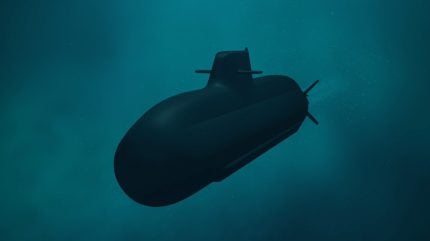
Fincantieri and Thyysenkrupp Marine Systems (TKMS), Italian and German naval suppliers, agreed to partner on delivering subsea capabilities to the Philippine Navy.
An industrial cooperation agreement was signed by the two European defence companies to support the archipelago’s strategic defence objectives laid out in the Horizon III military modernisation initiative according to a press report released today, 16 April 2025. The two will strengthen infrastructure and expand operational capabilities.
Looking ahead, the duo said that introducing modern submarines into the Philippine fleet would be a “game-changer” in securing its territorial waters from Chinese infringement in the South China Sea.
Manila plan to acquire at least two conventional diesel-electric submarines (SSKs) as well as various underwater defence capabilities; the Philippines have never operated submarines before.
GlobalData intelligence indicate the estimated contract allocation for this future procurement to be worth $1.4bn (79.2bn pesos) over the next decade – just over a quarter of Philippine defence spending in 2024.
At present, the People’s Republic of China (PRC) contest Philippine sovereignty over the Scarborough Shoal, the Second Thomas Shoal and the Sabina Shoal. The PRC have employed dangerous tactics to challenge Philippine control and disrupt their resupply missions, including the use of water cannons and a military-grade laser.
U212 NFS
The Italian Navy are the only country that plan to operate the U212 Near Future Submarine (NFS). Four submarines will enter service between 2029 and 2032.
The SSK is modelled on the previous Italian and German Type 212A design, which dates back to 1996. This earlier model first featured Air Independent Proulsion technology, enabling the submarines to submerge for longer periods of time.
NFS is also an advancement in its use of a lithium-ion battery rather than lithium acid. Fincantieri’s subsidiary, Power4Force has established a sovereign lithium-ion battery manufacturing facility to overcome the fragmented global supply chain.
Platforms versus capabilities
GlobalData forecast the global submarine market, valued at $40bn in 2025, to grow at a compound annual growth rate of more than 5% over the next decade.
The growing demand for submarines of any type demonstrates that platforms still remain a critical part of a force’s deterrence and power projection. Contrary to some voices in the global defence industry, it does not seem as though large and costly platforms face extinction with the rise of a more agile network of systems.
The Philippines’ armed forces modernisation demonstrates the balance between platforms and capabilities.
A network of systems are still required, as demonstrated by a recent industrial partnership between Anduril and Ultra Maritime. In this instance, Anduril’s stealthy, long-distance Dive XL uncrewed underwater vehicle deploys the Seabed Sentry payload system, which in turn will host Ultra’s Sea Spear sonar sensing array to detect submarines.





